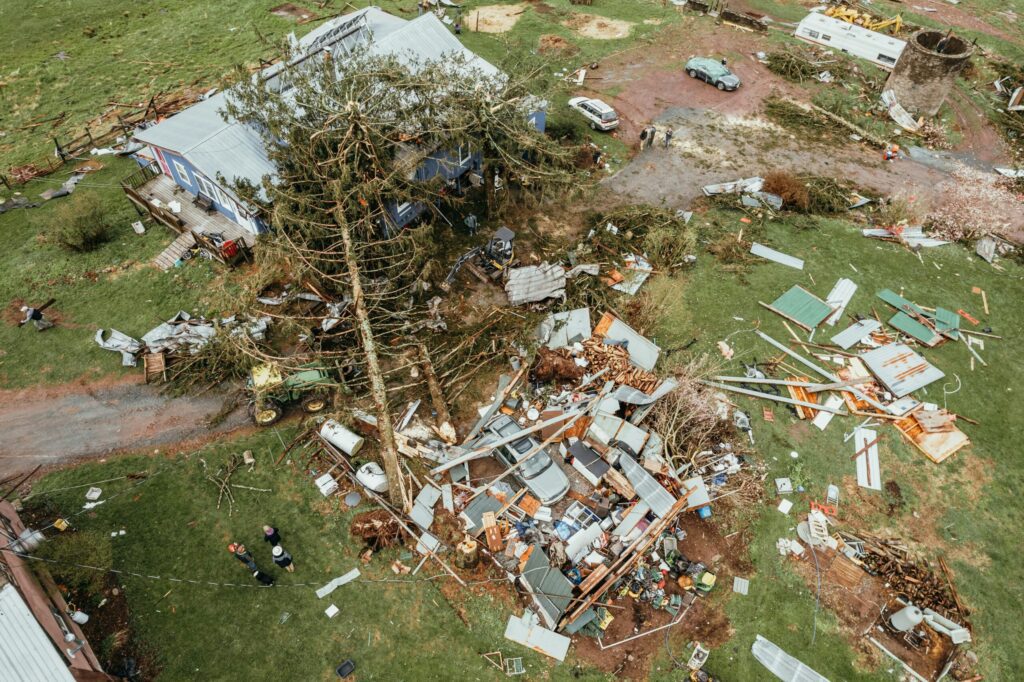Hurricane Debby made an unforgiving landfall on Florida’s coast before continuing its destructive path up the East Coast of the United States. The storm, which intensified rapidly as it moved inland, caused severe flooding, widespread power outages, and significant damage to homes, businesses, and critical infrastructure. As the storm’s winds and rains ravaged states such as Florida, Georgia, the Carolinas, and parts of the Northeast, the nation was left grappling with the aftermath.
At least 10 lives were lost due to the hurricane’s destructive force, with authorities reporting significant casualties from both storm-related flooding and accidents linked to the storm’s violent winds. Emergency responders have been working around the clock to rescue those stranded and to secure properties that are still at risk of further damage. While initial assessments place the damage at an estimated $7 billion, experts warn that this number could increase as recovery operations continue and more impacted areas are reached.
Florida bore the brunt of the storm, with many coastal communities experiencing catastrophic damage. Entire neighborhoods were submerged in floodwaters, while storm surges washed away sections of roadways and caused extensive beach erosion. The hurricane’s impact on infrastructure has been profound, with power outages affecting millions and emergency services struggling to keep up with demand. Relief efforts have been hampered by the extent of the destruction and the ongoing danger of flash flooding in several regions.
As the storm continued its northward trajectory, the states of Georgia, South Carolina, and North Carolina faced heavy rain, leading to localized flooding and road closures. Cities like Charleston and Savannah were forced to implement curfews to allow emergency crews to clear debris and conduct rescues. By the time the hurricane reached the Northeast, it had weakened, but not before leaving behind a wake of severe flooding and property damage.
In response to the devastation, President Joe Biden issued a federal disaster declaration, which enabled the mobilization of federal resources to assist local and state recovery efforts. FEMA Administrator Deanne Criswell expressed the agency’s commitment to supporting affected communities, stating, “Our thoughts are with those affected by this devastating storm. We are committed to providing the necessary support to help communities rebuild.”
The widespread damage caused by Hurricane Debby has sparked renewed discussions around the need for stronger infrastructure and better preparation for future storms. Experts argue that the impacts of climate change, including more frequent and intense storms, have become increasingly evident. Many are calling for a reevaluation of how the nation plans for and responds to extreme weather events, with an emphasis on enhancing the resilience of infrastructure to withstand such catastrophic events.
The path to recovery will be long and challenging, but the resilience of the American people, combined with federal assistance, will hopefully pave the way for rebuilding and future preparedness against the growing threats of climate-related disasters.


